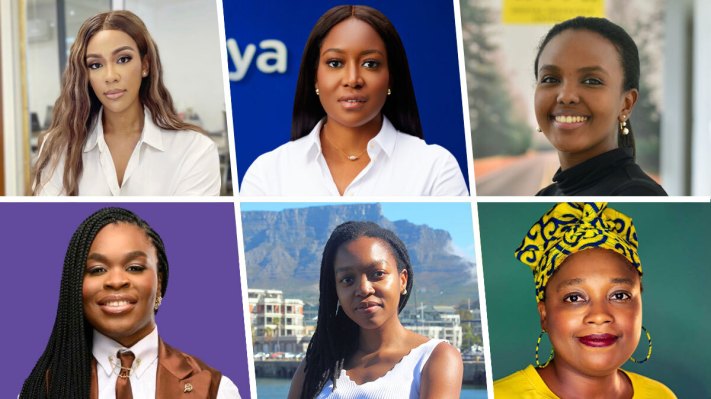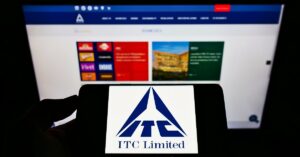Women-founded companies in the U.S. raised more money from venture capitalists in 2021 than ever. Reports indicate they secured 83% more funding than the previous year, primarily attributed to the record-setting $329 billion U.S. startups raked last year.
But according to data from PitchBook, less than 2% of VC funding went to all-women-founded teams in 2021. It’s identical to what’s happening in Africa: Less than 1% of all VC dollars went toward startups with one or more women founders last year, according to The Big Deal, which details investments in Africa. On the bright side, founding teams counting both women and men as members raised $750 million, or 17% of VC investments in Africa in 2021.
These numbers are more frightening when retraced almost a decade back. According to Briter Bridges, another publication that tracks VC investments in Africa, only 3% of the total funding raised by startups in Africa since 2013 has gone all-women co-founded teams.
So despite total funding for women-founded companies reaching $834 million in 2021, per Partech Africa — a VC firm and data tracker of African investments — and the number of women in venture capital increasing, their representation remains minute against a faster-growing percentage of startups run by men.
Women-founded startups in Africa to have raised $100 million or more are led mainly by white CEOs. Not that it’s any fault of theirs, but the representation of their companies being Africa-based skew funding results in such a way that they don’t capture how much of an enormous feat it is for African women to raise $1 million.
Before 2021, only a handful (women-led startups that raised $1 million or more with African women as CEOs) had secured that much funding. In 2021, 11 such startups achieved that feat, a record year for this group. We spoke with six of them to share their fundraising experiences in a venture capital market that can be unfriendly toward women.
Editor’s note: These responses have been edited for length and clarity.
Here’s who we talked to:
- Jessica Anuna, founder and CEO, Klasha
- Tebogo Mokwena, co-founder and CEO, Akiba Digital
- Fara Ashiru Jituboh, co-founder and CEO/CTO, Okra
- Jihan Abass, co-founder and CEO, Lami
- Honey Ogundeyi, co-founder and CEO, Edukoya
- Nelly Chatue-Diop, founder and CEO, Ejara
Jessica Anuna, CEO, Klasha
Please tell us what your company does.
Klasha is a technology company that allows international merchants such as H&M or Zara to receive payments online in local African currencies and money methods. African consumers can make payments to international merchants in over five African currencies through the KlashaCheckout; the merchant then receives their payout in G20 currencies.
This allows international merchants to scale into Africa seamlessly through our technology and, in turn, allows African consumers to access global goods and services frictionlessly.
What theories concerning women founders did you have at the back of your mind when starting your company, and did it affect you at the early stages?
I was cognizant that women only received less than 1% of venture funding globally, but that wasn’t at the forefront of my mind as I started my journey or as I pitched to VCs or angels. In fact, it wasn’t something I thought about at all. I’ve always been bullish about shipping products that created an impact during my career, so I knew if we had a strong enough product-market fit, we would get funded.
At what point did you begin looking for investors for your company?
Right at the start, our first institutional check was from Techstars in Dubai six months after we started the company. They believed in the team, vision, mission and the opportunity of building streamlined cross-border commerce solutions for African consumers. The market opportunity was there; e-commerce is less than 10 years old in Africa, with a 3% penetration rate and a 27% personal consumption rate in Africa, the second-highest after Asia.
How did you handle your first “no,” and how has that changed recently, especially with your company raising more than a million dollars?
I got nos right from the start and that was fine. I’d get a no, ask why and affect their feedback if I agreed with it and it aligned with my vision for the company. Today, more VC firms are willing to speak with us, but that doesn’t guarantee additional funding. Some still pass on investment or pass and invest at a later stage or in a different round, which has happened on a few occasions.
There are fewer than 50 women-led tech startups that have raised $1 million or more in Africa. Being one of about 15 last year, what challenges did you face when raising this much as a founder and CEO?
Our round closed quite quickly last year, so I think the major challenge was ensuring I did thorough due diligence on each investor and chose funds or angels that could add value to the company and that I wanted to work with. Investors typically deploy large capital into financial-based companies. Because Africa is currently undergoing modernization and consumer spending and consumption are increasing, conversations with VCs were more streamlined than our previous rounds.
Given these biases, do you think more women would get investments if there were more women investors?
Today, only 2.8% of women are funded globally. A recent Boston Consulting Group study found that when women-led startups can acquire funding, they’re more likely to be successful than their male counterparts, delivering significantly higher revenue— more than twice as much per dollar invested in the company.

Jessica Anuna, CEO, Klasha
Ultimately, VCs should seek to invest based on whether the company has strong unit economics, TAM and the whether the founding team has true domain expertise in what they’re building. If deals were approached this way more commonly, I believe women would get funded.
Most VC firms are required to deliver returns on their investments. Some argue that investing in startups led by men will guarantee such returns, citing examples to back up that claim. Given a few instances of women-led companies doing such in Africa, how have you convinced investors that your business can achieve this?
In my opinion, returns on investment aren’t linked to gender or the notion that there are little to no instances of female-led companies providing 10x returns on the continent.
My current investor pool, which was led by women at Greycroft and Seedcamp, invested because of the opportunity of solving a problem continent-wide and the prospect of facilitating cross-border commerce through modern technology.
When raising money, you have to be bullish, respond fast, and ship products even faster, proving traction and market adoption. We have a good product, continued solid month-on-month growth with a growing addressable market and, thus, that yielded investment.
The power of one’s network cannot be overemphasized in the business world. How were you able to utilize yours when it came to securing funding?
I cannot stress how critical a strongly connected network is when raising money. Most, if not all, our funding was raised through strategic introductions to angels and funds through our new and existing investor pool. Today, we leverage our investor network and ask for introductions if we’re raising or want to connect with a fund for future rounds.
In the VC space, it is said that those who hold the money tend to invest more in people who look like them. That’s why women founders are encouraged to transition into angel or VC investing to increase the number of women-led startups that get investments. Do you see yourself making this transition?
I strongly believe in paying it forward, and when I have more bandwidth, I will invest in African companies with at least one woman in the C-suite.
Tebogo Mokwena, CEO, Akiba Digital
Please tell us what your company does.
Akiba Digital is a South African-based fintech building an alternative credit scoring infrastructure (basically a new age credit bureau) for small businesses and individuals excluded by traditional credit bureau scores.
I started this company after noticing a massive access problem experienced by thin-file individuals and SMMEs in South Africa, a problem that is prevalent in other countries in Africa. This segment often doesn’t access affordable credit (and other financial services like insurance) and is excluded by high street lenders like banks. And I want to change that.
What theories concerning women founders did you have at the back of your mind when starting your company, and did it affect you at the early stages?
As a Black female technical founder, I got a lot of skepticism about my aptitude and whether my technical skillsets were enough to build a scalable fintech business. When I moved from being CTO to being CEO, I got a lot of skepticism about my business acumen.
Both pushbacks were bizarre because I hold a triple major degree in computer science, genetics and biochemistry from UCT and UCLA, have a solid career as a software engineer and digital consultant from one of the largest asset management firms in SA and McKinsey, respectively.
I have helped build a digital bank in South East Asia which scaled to over 2 million users now, before assisting on a build on another successful digital bank in Nigeria. Most male founders don’t have such a track record, yet their aptitude doesn’t get questioned.
At what point did you begin looking for investors for your company?
I only started looking for investors when I had confidence in our business model and needed investment to fuel it to scale. It took us two years of bootstrapping to get to a pre-seed raise in 2021.
How did you handle your first “no,” and how has that changed recently, especially with your company raising more than a million dollars?
Initially, I took nos personally because I assumed it was a reflection of how others viewed my competence. Now, they give clarity on who is right to join us and help us build out our vision and it has nothing to do with me. I believe the right investors will jump in at the right time.
There are fewer than 50 women-led tech startups that have raised $1 million or more in Africa. Being one of about 15 last year, what challenges did you face when raising this much as a founder and CEO?
This is still a crazy statistic given where the African ecosystem is to date. Nonetheless, raising bigger rounds as a woman seems unfathomable for most VCs who are male-led and I see their biases come through in the types of questions I get asked that I know my fellow male founders don’t get asked.
One difficulty is valuation. For some reason, some VCs expect me as a female founder to under-value my business for it to justify them investing in us.
We all know that the startup world, locally and globally, is a male-dominated one and when it comes to raising money, there tends to be some bias. Can you narrate some of the bias and gender inequality you encountered during this raise cycle?
The biggest bias is how they choose to mostly undervalue female-led businesses versus male-led businesses despite the drastic difference in traction and competence backed by strong track records.
The other bias is how they assume female-led businesses don’t build businesses that can be scaled across different markets and into billion-dollar companies.
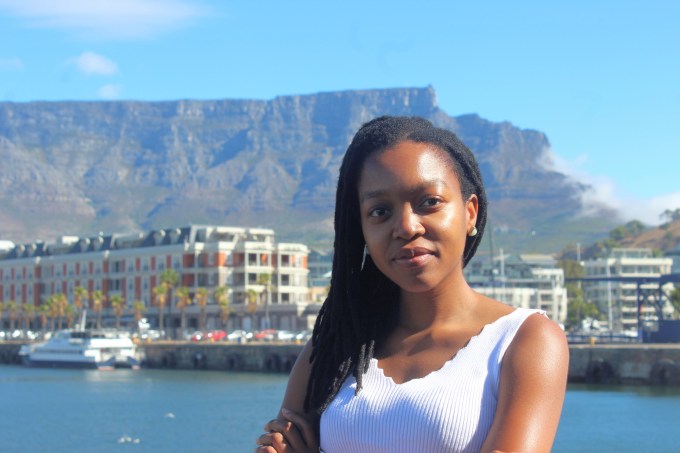
Tebogo Mokwena, CEO, Akiba Digital
Given these biases, do you think more women would get investments if there were more women investors?
Yes absolutely! I think we all have our own inherent biases. The more representation we have in VCs, the better the flow of investment in under-represented minorities, not just women but even people of color, queer people or those living with disabilities; 10x returns can come from all forms, shapes and types of founders.
Most VC firms are required to deliver returns on their investments. Some argue that investing in startups led by men will guarantee such returns, citing examples to back up that claim. Given a few instances of women-led companies doing such in Africa, how have you convinced investors that your business can achieve this?
There have been studies that show that women-led businesses perform better than male-led businesses in terms of metrics that matter. However, male-led companies get valued more because of vanity metrics and overall biases that exist.
This is not a fight I choose to fight, mainly for my sanity, but because most of us (and I mostly speak for myself here) have to conform to speak and portray ourselves in a way that makes us is less threatening to the “bro” culture to be seen in the same light.
This, for me, means relying on my male founder friends to vet for me to investors. Secondly, I had to learn to share my prior achievements, including building this company from being the remaining solo founder in 2020 to being a 30-people team now.
The power of one’s network cannot be overemphasized in the business world. How were you able to utilize yours when it came to securing funding?
I had to rely on male founder friends and other male investor friends to help me grow my network. Of course, I made it intentional to contribute to other female founders just so they are aware of the game we all play to be validated in the ecosystem as female founders.
In the VC space, it is said that those who hold the money tend to invest more in people who look like them. That’s why women founders are encouraged to transition into angel or VC investing to increase the number of women-led startups that get investments. Do you see yourself making this transition?
Oh yes, I plan to make angel investments exclusively to female founders as soon as yesterday! We can only make the change by passing it forward.
Fara Ashiru Jituboh, CEO/CTO, Okra
Please tell us what your company does.
Okra simply enables developers and businesses to build personalized digital financial service products. Our mission is to digitize financial services for Africa.
What theories concerning women founders did you have at the back of your mind when starting your company, and did it affect you at the early stages?
I just always thought that there is an obviously huge gap between male and female funding, and we definitely need to find ways to reduce that. We were intentional about making sure we partnered up with investors who were looking to back the best teams and businesses, regardless of gender, race, or religion.
At what point did you begin looking for investors for your company?
After we incorporated the company, my co-founder and I created milestones and started talking to investors as soon as we hit them.
How did you handle your first “no,” and how has that changed recently, especially with your company raising more than a million dollars?
To be honest, we approached fundraising very differently, and we were realistic enough to know that every investor wouldn’t be a good fit and vice versa.
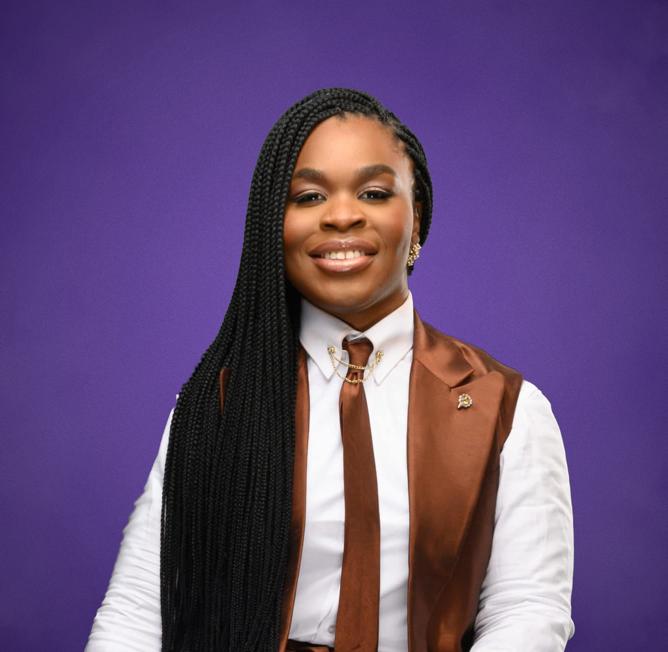
Fara Ashiru-Jituboh, CEO, Okra
An investor’s job is to deploy capital. You can’t be upset if someone doesn’t want to give you millions of dollars for your silly idea — so because of this perspective, the “nos” didn’t register to us as a “rejection” because we had to say no to a few potential investors as well.
There are fewer than 50 women-led tech startups that have raised $1 million or more in Africa. Being one of about 15 last year, what challenges did you face when raising this much as a founder and CEO?
There’s always a dance between investors and founders during a fundraise on getting the right amount of capital that the business needs and making sure the terms are favorable on both sides. This is always a challenge and I’m grateful for an amazing co-founder who was on top of this as well.
We all know that the startup world, locally and globally, is a male-dominated one and when it comes to raising money, there tends to be some bias. Can you narrate some of the bias and gender inequality you encountered during this raise cycle?
Okra is arguably one of the most diverse companies globally from a gender and ethnic perspective — diversity and inclusion is in the ethos of the company. I think at the time, a few people were surprised at how technically involved I am in the day to day of the product.
Given these biases, do you think more women would get investments if there were more women investors?
I think more female investors definitely means more female entrepreneurs, which is a great thing. I also believe it is important that, as a society, we recognize our natural human biases for better and more equitable decision-making.
Most VC firms are required to deliver returns on their investments. Some argue that investing in startups led by men will guarantee such returns, citing examples to back up that claim. Given a few instances of women-led companies doing such in Africa, how have you convinced investors that your business can achieve this?
We looked for thesis-driven investors who are first principle-driven — this means that they were not looking for validation from history or the public to be bold. They had their own conviction based on fundamentals like the team, market size and product-market fit. We don’t pay attention to investors who only pattern-match based on gender.
The power of one’s network cannot be overemphasized in the business world. How were you able to utilize yours when it came to securing funding?
I believe in the 6 degrees of separation, so network is certainly helpful, but it only gets you to the door; substance gives you a sit on the table.
For example, today, with near-zero interest rates in the U.S., I don’t think I can do anything if my sister wants to raise VC funding without having any value or substance. But I can certainly help with my network if she already has a compelling product that customers love.
In the VC space, it is said that those who hold the money tend to invest more in people who look like them. That’s why women founders are encouraged to transition into angel or VC investing to increase the number of women-led startups that get investments. Do you see yourself making this transition?
I’m not actively angel investing because I’m 100% focused on Okra, but I’m certainly open to supporting strong early teams, some of which might be public soon.
Jihan Abass, CEO, Lami
Please tell us what your company does.
Lami is a B2B2C insurance-as-a-service platform and API. Lami has digitized the entire insurance value-chain end to end from KYC, pricing, underwriting, and claims processing all in one platform, and API that can be used to distribute any insurance product at any point of sale.
What theories concerning women founders did you have at the back of your mind when starting your company, and did it affect you at the early stages?
I think the main thing was that there are few female founders in the tech ecosystem and even fewer in the fintech space. What affected me starting out was that I felt there were very few people to talk to who were in similar shoes.
Of course, there are women in businesses and leadership positions but few female founders to compare notes with. I struggled with the fact that I didn’t see faces like mine.
At what point did you begin looking for investors for your company?
I had to go the unconventional route at the start regarding raising funds. I found it quite challenging to raise funds when I started out, mostly because I wasn’t part of the tech ecosystem, so in order to start my business, I used all my savings and went to family and friends to raise the rest. That was what I used to build our MVP before raising from institutional investors in late 2020.
How did you handle your first “no,” and how has that changed recently, especially with your company raising more than a million dollars?
I found it quite hard to hear the word no. I think it was very difficult for me not to take it personally, but of course, it was a learning opportunity for me. It also made me realize that investors may not understand your vision in some instances, but it also means they may not be the right investors for you.
There are fewer than 50 women-led tech startups that have raised $1 million or more in Africa. Being one of about 15 last year, what challenges did you face when raising this much as a founder and CEO?
I would say the biggest challenge I faced was getting a lead investor on board, especially because insurtech wasn’t seen as exciting as it is now. Getting that first big investor to really believe and back us took time.
We all know that the startup world, locally and globally, is a male-dominated one and when it comes to raising money, there tends to be some bias. Can you narrate some of the biases you encountered during this raise cycle?
The main issue is the biases in the process and particularly around what investors or even who investors are used to seeing in front of them. I think the biggest challenge is knowing whether or not you’re getting a good deal and what that compares to your male counterparts.
I also found that the traction discussion was always quite interesting in the fundraising process. I think there are big biases in this in particular because what is the right level of traction and how is that determined? The ambiguity around these questions really does open up the door for biases.
What’s your opinion on the disparity in funding between women founders and their male counterparts? And given these biases, do you think more women would get investments if there were more women investors?
One of the issues we have is that some of the sectors investors are most excited about generally attract fewer women like fintech, insurtech, logistics. Due to that, I think we end up seeing fewer female-led businesses funded as the majority may be in sectors that are still new to investors.
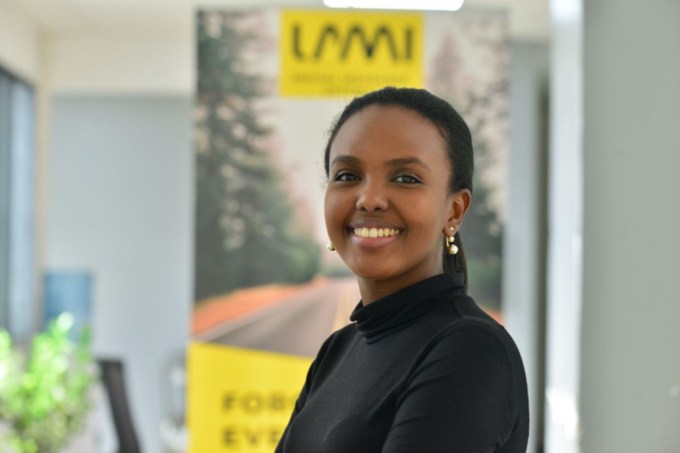
Jihan Abass, CEO, Lami
I believe that having more female investors, more female IC members, board members will eventually lead to more investments in female-led businesses. My lead investor Accion has lots of female-led startups in their portfolio and I do believe that this is driven by the team they have.
Most VC firms are required to deliver returns on their investments. Some argue that investing in startups led by men will guarantee such returns, citing examples to back up that claim. Given a few instances of women-led companies doing such in Africa, how have you convinced investors that your business can achieve this?
Coming from Africa is an advantage and has played a big part in our success. I saw many of these challenges growing up, so I have a deeper understanding of how society operates and how people view things. This perspective provides an edge when building solutions for the continent.
Our achievements have been consistent and making sure the VCs can see this growth we have made so far builds on trust and understanding of the potential growth Lami contains.
I fundamentally believe that it is impossible for investors to expect big returns from businesses they never funded. If female-led companies were given the same levels of investments, I do believe we’d have more unicorns not just in Africa but worldwide.
The power of one’s network cannot be overemphasized in the business world. How were you able to utilize yours when it came to securing funding?
My network in the tech space was quite limited. But I had a few great friends who introduced me to investors in their network. Our lead investor contacted us after hearing me speak on a panel at a virtual event.
In the VC space, it is said that those who hold the money tend to invest more in people who look like them. That’s why women founders are encouraged to transition into angel or VC investing to increase the number of women-led startups that get investments. Do you see yourself making this transition?
I think what I can accomplish at this level as a founder is to hire more women within our organization to encourage participation in such a field. For example, hiring top female talent because I think ultimately, you’re empowering them to see that it’s not impossible to build a fintech business.
From there, they may potentially be able to go and start their own business. Being able to set up that kind of culture, hiring more women and empowering them could be an easier way to impact the transition of more women in fintech. I hope that one day I’ll be on the other side of the table and provide support as an investor because I do believe that is the best way to transform the landscape.
Honey Ogundeyi, CEO, Edukoya
Please tell us what your company does.
Edukoya is an education technology company on a mission to make high-quality education more engaging, personalized, and accessible for the next generation of Africans. Our primary offering is an online mobile learning platform that connects primary and secondary school learners with the 99.9th percentile of certified tutors for real-time one-on-one learning.
What theories concerning women founders did you have at the back of your mind when starting your company, and did it affect you at the early stages?
Less theory, more data and the lived experience of being a female founder, the numbers are there for everyone to see: $5 billion of capital-funded startups in Africa last year and only 1% went to companies without a male founder. Over the last 10 years, the share has averaged about 3%.
It is a fact that female founders get less access to funding to build their startups, but regardless of that, I was still passionate about the problem I was solving and our solution, the strength of our team and my experiences.
At what point did you begin looking for investors for your company?
I raised our initial funding tranche at the earliest stages of the business when I was sure I had the right model and team that I could successfully build and scale across the continent. The pre-seed round was many times oversubscribed and closed relatively quickly.
How did you handle your first “no,” and how has that changed recently, especially with your company raising more than a million dollars?
I was prepared for my first no. I understand that not everyone will buy into my vision. It is part and parcel of the fundraising process. The key thing I did was to inch towards the “yes” and the right “yes” while pitching and selecting the right partners on this journey.
Now that we have raised some capital, the first investment milestone is just the start, not the actual milestone. It enables us to progress towards our goal to educate the next billion learners.
There are less than 50 women-led tech startups that have raised $1 million or more in Africa. Being one of a handful last year, what challenges did you face when raising this much as a founder and CEO?
On the fundraising journey, I was extremely lucky to find an amazing crop of investors led by Target Global and some super amazing supportive founder angels who were willing to back my vision. The main challenges are mostly around conscious and unconscious bias faced as a female founder.
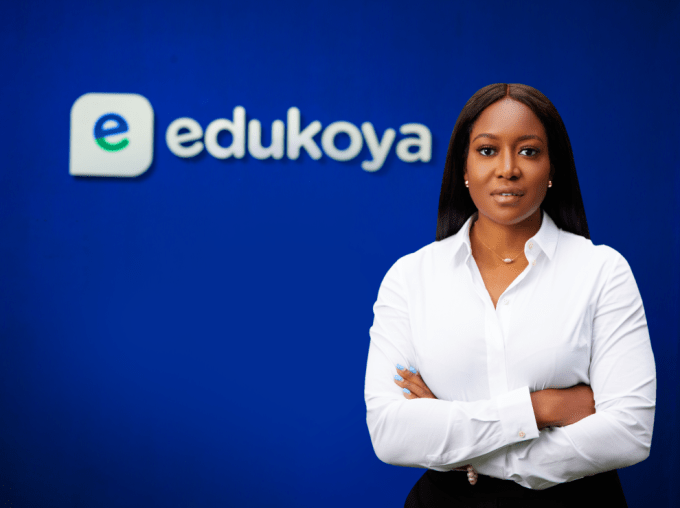
Honey Ogundeyi, CEO, Edukoya
The other conscious and unconscious biases show up differently during the pitching process — having to justify round size, managing relationships with investors who are not comfortable with firm boundaries from female founders, and the type of questions I received compared to male peers.
We all know that the startup world, locally and globally, is a male-dominated one and when it comes to raising money, there tends to be some bias. Can you narrate some of the bias and gender inequality you encountered during this raise cycle?
The ecosystem has come a long way since I built my first startup in 2013. There is still so much to be done to encourage gender-equal platforms for tech founders. I am also passionate about mentoring and working with female founders and the stories are very alike.
In some cases, female founders are told that having a male partner or co-founder would allow investors to take them more seriously. Some were even rejected because they were asked to choose between the startup and their families; it can be an extremely challenging test of endurance to find the right investors.
But I believe as female founders, we have to trust in our vision, realize everyone will not be a good fit, and keep working to find the right investors without compromising on our personal and business values.
Given these biases, do you think more women would get investments if there were more women investors?
Yes, more female investors would increase the number of female-funded tech startups. However, female investors will often come from technology careers, so to get more female funders requires a systematic shift and change across the whole ecosystem.
We need to create more safe places for women in tech companies, we need to create more female angel investors and, most importantly, we need to work within the existing structures to ensure more angels and VCs write women more checks and become aware of their bias in the fundraising process to create an enabling environment for more women funded founders to thrive and co-exist.
The power of one’s network cannot be overemphasized in the business world. How were you able to utilize yours when it came to securing funding?
I have worked in the technology space for over 18 years and built a track record of execution, performance, and network that helped secure funding.
I was also fortunate at a certain point to be able to structure the round and select the right partners for me at that time. It is important for founders to do their due diligence.
Develop relationships in advance of when you need the funding and figure out if this is the right backer for you and your team. It’s a two-way street. Not every investor is right for you and that’s OK. It’s a long journey and you should be selective as well with who you want on the journey.
In the VC space, it is said that those who hold the money tend to invest more in people who look like them. That’s why women founders are encouraged to transition into angel or VC investing to increase the number of women-led startups that get investments. Do you see yourself making this transition?
I am a hundred percent focused on building Edukoya, and I am pleased that I was also deliberate in including female angel investors when building my pre-seed round. There are too many all-male cap tables, which also needs to be addressed.
I continue to be deliberate about this now at Edukoya, in my teams, in the boardroom and on the cap table. We need to make room for exceptional women. This is an important way to begin to build the ecosystem we want to see.
Nelly Chateau-Diop, CEO, Ejara
Please tell us what your company does.
Ejara is a crypto-led 21st-century financial institution for Francophone Africans and its diasporas. We are building bridges between crypto and traditional finance by enabling access to various investment and saving offerings while incorporating African familial values of wealth and community into our construction.
What theories concerning women founders did you have at the back of your mind when starting your company, and did it affect you at the early stages?
Having worked in finance and tech across Europe and the U.S. early in my career, I had already assimilated the experience of being a Black woman in a white-male-dominated world. In executive positions, this was even more the case.
So for me, entrepreneurship was just a natural progression and it shows in the data: Less than 1% of funding goes to black women. We are under-represented, so I don’t let these facts and figures affect me at any given time in my life. I choose to focus on what is most important: solving problems and creating products that change lives. You could say my corporate experience toughened my skin.
At what point did you begin looking for investors for your company?
Very early on, as soon as I started feeling more confident in my vision than my numbers. As a founder, you never want to wait until you need money to raise money; it’s better to get ahead of the curve.
How did you handle your first “no,” and how has that changed recently, especially with your company raising more than a million dollars?
The funny thing is, investors never say a clear “no” to you for fear that another more experienced/prestigious investor will invest. They always want to be able to come back at any time in case the pendulum swings.
During my first attempt, I quickly realized this and saw myself getting further away from the business while fundraising with investors with no genuine interest; I decided to stop the process and focus on the company, my customers, my team and myself. This meant finding a pathway through bootstrapping the business.
There are fewer than 50 women-led tech startups that have raised $1 million or more in Africa. Being one of about 15 last year, what challenges did you face when raising this much as a founder and CEO?
As a founder in Africa, the most complicated thing is educating foreign investors about the market opportunity we represent. Many investors, especially from the West, know nothing about Africa. If you are not in Nigeria, Kenya, South Africa or Egypt, they have no reference. So, you have to do thorough educational work before you even talk about your business.
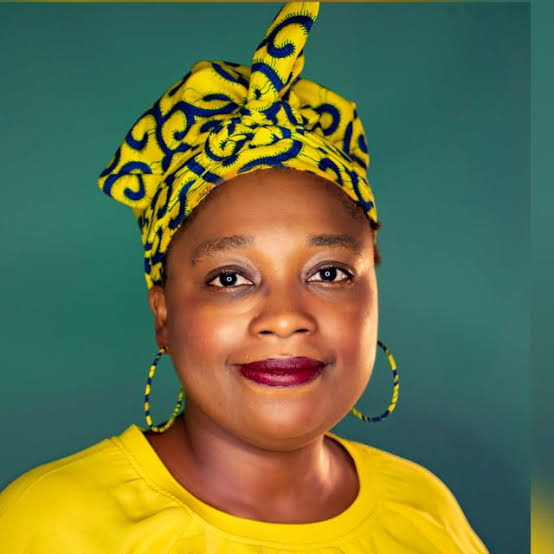
Nelly Chateau-Diop, CEO, Ejara
Some investors also have ulterior motives and think they can pass preferential clauses that they would never dare try in Europe or the U.S. Since local lawyers are not used to handling these deals, it requires spending time personally to protect your company from shark investors.
We all know that the startup world, locally and globally, is a male-dominated one and when it comes to raising money, there tends to be some bias. Can you narrate some of the bias and gender inequality you encountered during this raise cycle?
I’ve been lucky enough to work with funds such as Coinshares, Anthemis, and Mercy Corps that don’t look at gender or color but only at your vision and your ability to execute it.
De facto, if I feel that a fund is biased or talks down to me, I eliminate it from my list. It’s up to you to have confidence in yourself and dictate your terms. I had one investor that tried to belittle my corporate experience saying it had no bearing in me being able to lead a company.
Another one went as far as dismissing my analysis on his sharky terms, even criticizing the expertise of my top-tier female investors that agreed with me. It is unfortunate, but this is the reality of the male-dominated world we live in and these are the challenges women must be prepared to face.
Given these biases, do you think more women would get investments if there were more women investors?
The short answer is a big yes, and that’s why I am so excited by the likes of Serena Ventures, FirstCheck Africa, Ingressive Capital, Backstage Capital and so many more.
The lack of women, especially women of color, in decision-making positions such as partner or principal in funds plays a vital role in the gender funding disparity.
There is also a need to educate our women to learn to leverage their network to create and structure their funds. It is a rather obscure world for the average Jane and democratizing it would do a lot of good for us.
Most VC firms are required to deliver returns on their investments. Some argue that investing in startups led by men will guarantee such returns, citing examples to back up that claim. Given a few instances of women-led companies doing such in Africa, how have you convinced investors that your business can achieve this?
First, people that argue about past data when they are just imbalanced and filled with biases are not worth a second of my time. How can you make progress if you are only looking backwards?
Once again, it’s all about finding the people who believe in your vision. Our investors have already invested in emerging markets and know the growth opportunities related to these blue ocean markets.
They also believe in our ability to execute, and the existing traction was already a telltale sign. Everything else doesn’t matter to them. These are the kind of people I choose to surround myself with. I don’t need to convince all the investors on the planet. I just need a few aligned with my values and found them; everything else is noise.
The power of one’s network cannot be overemphasized in the business world. How were you able to utilize yours when it came to securing funding?
Nothing beats Twitter. I used to DM a lot of female founders to share learnings. It was very easy to network that way and still is.
Then one thing led to another. I told them about my business, kept them updated and as they saw the traction, they started introducing me to investors and people that knew investors.
All of a sudden, I found myself raising money. Even investors themselves introduced me to other investors, which I didn’t expect to happen. At the end of the day, we are human beings, and relationships matter a lot. Business is built from connection and trust. Sending a cold email may or may not work, but an introduction is always better.
In the VC space, it is said that those who hold the money tend to invest more in people who look like them. That’s why women founders are encouraged to transition into angel or VC investing to increase the number of women-led startups that get investments. Do you see yourself making this transition?
I am focused on my mission; nothing else matters at this point. However, I have friends who are starting businesses and I am happily helping them by investing, so you could say in a way that I am already doing it.
Here are the other startups with women founders and CEOs that raised $1 million or more within the past year: Shuttlers, Bankly, Jetstream, Kwara, ReelFruit and OZE.

